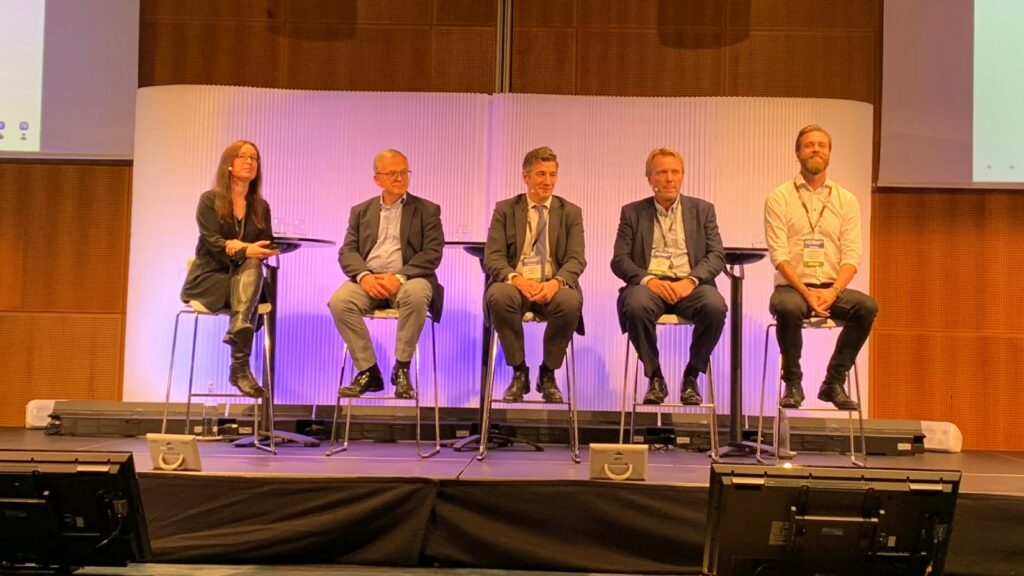VIDEO | With the US on track for T+1, the global financial industry is feeling the pressure to follow suit. At PostTrade 360° Copenhagen, a panel of experts sat down for an in-depth discussion of the opportunities and threats presented by this move, and whether T+0 is a realistic goal. Scroll to the bottom to watch the full panel session here, as well as the introductory keynote by BNP Paribas’ Alan Cameron.
In every discussion of T+1, the issue of settlement fails often comes up. Anders Tvilde, Manager of Sector and Infrastructure at Nordea, has an optimistic attitude towards Central Securities Depositories Regulation (CSDR) penalties, saying that it might just be what the industry needs to progress.
“The regulators will make markets get their act together,” he says. “We need, as an industry, to get together and reduce the failure rates generally… We need to be better, and if we aren’t, someone will come knocking on our door,” he said.
Danny Green, Head of International Post-Trade at Broadridge believes that T+1 can be achieved if the industry can reduce complexity. “The trading life cycle needs to simplify,” he says. “You shouldn’t be solving problems 24 hours later. You should really be looking at how you solve them in the trade support areas, in the middle office areas – almost from the back office perspective.” In short, solving issues more upstream within the organisation.
Tobias Bergholdt, Head of Derivatives and Collateral at Nykredit Portefølje Administration is of the opinion that embracing change and technology is the key to success for T+1. “Start going electronic, or make sure you use the same system within the organisation and have smart connections to the market systems,” he suggests. “We are really old-fashioned industry. We like what we know; we really don’t like what we don’t know, but word of advice, try to be a little more mobile.”
In his keynote speech that preceded the panel session, Alan Cameron took a more cautious view towards the adoption of T+1, pointing out that the benefits to having shorter settlement cycles remain unclear. Although its purpose is to reduce pre-settlement risks, the reduction in processing time could backfire by increasing risks somewhere else – particularly in operational risks, and especially for foreign investors. He is of the opinion that while T+1 is about the reduction of settlement cycles, it doesn’t just concern settlement; it is a major undertaking that requires engagement across the whole industry.
The panellists were:
Alan Cameron, Head of Client Line Advisory, Securities Services, BNP Paribas,
Tobias Bergholdt, Head of Derivatives and Collateral, Nykredit Portefølje Administration,
Danny Green, Head of International Post-Trade, Broadridge, and
Anders Tvilde, Manager, Sector & Infrastructure, Nordea, moderated by
Virginie O’Shea, Founder, Firebrand Research.
Watch the session videos here!
First, log in (or register as a user): LoginUse your LinkedIn login if you like.
• Our news posts around PostTrade 360° Copenhagen 2023, on 11–12 October, are gathered here.
• To download the 24-page jubilee event magazine, click here.
• The conference info site, with detailed agenda, is here.
• For post-event access to recorded sessions, sign up here (where you can even log in easily by your LinkedIn account).
• By the way … are we connected on LinkedIn already, among the 3,400 post-trade pros who are? Follow us here.












